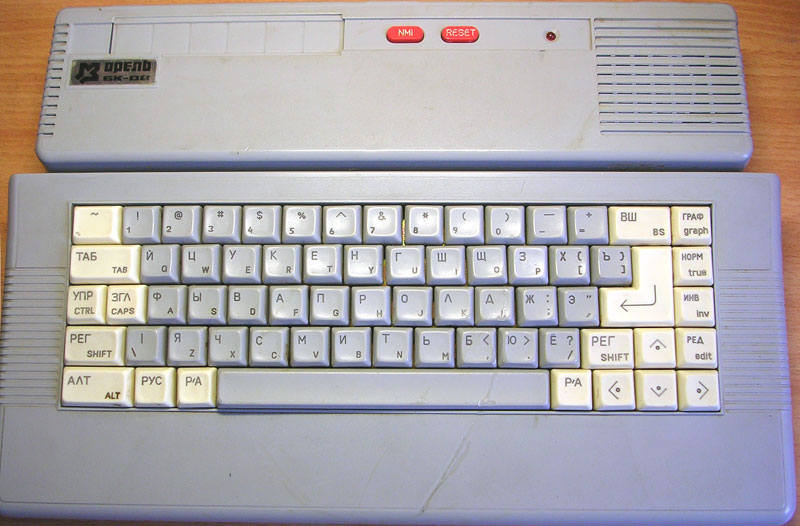OREL BK-08 - a better speccy from Ukraine
Most soviet ZX Spectrum clones were... weird. This one was amazing!

In the 1980s, citizens of Central and Eastern Europe did not have access to computers. Computer games were reviewed in the niche press, however, almost no one had access to them. Computers stimulated the imagination and were the object of dreams of children, adolescents and adults. The leaders of the socialist countries knew that the future depends on computerization and understood that without computers, social and economic development would be difficult. It was clear that the Soviet Union and the states of the Warsaw Pact must be computerized. But how to do it?
Mass production of any electronics was a serious enough challenge for the industry in any socialist country. Developing your own solutions and projects was often extremely difficult for political reasons, and that’s not all. A computer must have software to be a viable product. However, building a development industry, even educating programmers, is impossible without the prior delivery of computers. It seemed that it was a closed circle - the East will not introduce a computer to production, because there are no programmers who would provide software for the new platform; you cannot educate programmers and build an industry without universal access to computers.
So it was decided, as with many other products, to steal the idea of the West. We had to produce clones.
The easiest systems to clone were Sinclair computers, assembled from components manufactured by various manufacturers around the world, and in addition they were simple and relatively cheap. So the East started cloning British computers. The effects of the efforts of Soviet and East European engineers (sometimes also home hobbyists) were varied - from funny-looking, chaotic-designed quirks to devices better than the original.
The second group - solidly made computers, which are basically improved versions of the ZX Spectrum, includes the OREL BK-08. Often mistakenly attributed to Russian engineers, this computer was developed in Ukraine. It turned out to be so good that its production continued in Ukraine after the collapse of the Soviet Union, until the mid-1990s.
OREL (UKR./RUS. “EAGLE”) is a clone of a 48K Spectrum, but with 64k of RAM. The heart of the computer is the UA880A processor, a German clone of the Z80, similar to the one from MIK CA-80. The user could connect two joysticks using DIN ports (then popular in Eastern Europe). The main data carrier was, of course, a cassette tape. The tape recorder was connected to two DIN sockets. The use of different connectors meant that OREL (like most Eastern European clones) was incompatible with the accessories of the original ZX-Spectrum, while the software compatibility was considered as very good.
Noteworthy is a solid and comfortable keyboard with conveniently placed arrow-keys. As you can see, it is a Cyrillic keyboard. OREL was completely located. After starting the computer, we see a BASIC screen translated into Russian. BASIC commands and messages have also been translated into Russian.
Proud owners of OREL could connect memory extensions up to 1 MB, and there is also an expansion including the AY music chip.

